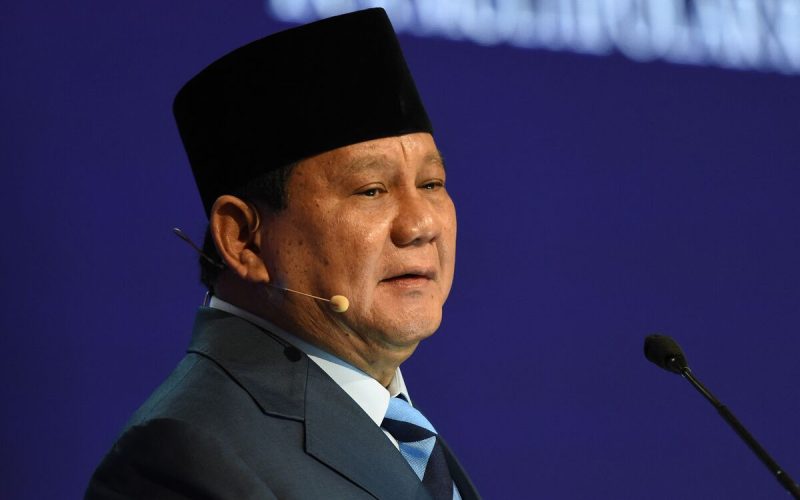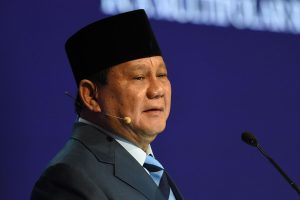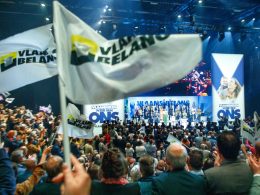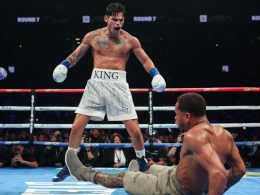In the intricate web of Indonesian politics, personalities often wield as much influence as policies. At the core of President Prabowo Subianto’s administration lies an enigmatic figure, a tycoon turned political fixer whose maneuvers behind the scenes have stirred both fascination and controversy. This article delves into the life, influence, and implications of this influential individual, examining the intersection of wealth, power, and politics in Indonesia.
The Rise of the Tycoon
Born into wealth and privilege, the Indonesian tycoon ascended the ranks of business with remarkable agility. His ventures span across industries, from banking to natural resources, accumulating immense wealth and influence along the way. However, his ambition transcended mere financial success; he harbored political aspirations, viewing politics not just as a realm of power but as a means to safeguard and expand his economic interests.
The Political Fixer Emerges
As Indonesia transitioned to democracy, the tycoon saw an opportunity to leverage his wealth and connections for political gain. He strategically aligned himself with rising political figures, offering financial support and strategic counsel in exchange for influence. Gradually, he cultivated a reputation as a behind-the-scenes power broker, adept at navigating the intricate dynamics of Indonesian politics.
The Prabowo Connection
The ascension of Prabowo Subianto to the presidency marked a pivotal moment in the tycoon’s political career. Recognizing Prabowo’s ambition and potential, he threw his support behind the charismatic leader, orchestrating behind-the-scenes maneuvers to bolster his candidacy. In return, Prabowo entrusted him with unprecedented influence, granting him a key advisory role in shaping policy and appointments.
Controversies and Criticisms
However, with power comes scrutiny, and the tycoon’s ascent has not been without controversy. Critics accuse him of wielding undue influence, undermining democratic processes, and prioritizing personal gain over public welfare. Allegations of corruption and cronyism have dogged his career, raising questions about the integrity of Indonesia’s political system and the extent of elite capture.
Analysis: The Intersection of Wealth and Power
At its core, the tycoon’s rise epitomizes the nexus of wealth and power in Indonesian politics. His ability to navigate the intricate web of political alliances underscores the blurred boundaries between business and governance, where economic interests often dictate political outcomes. Moreover, his influence highlights the enduring legacy of oligarchy in Indonesian society, where a select few wield disproportionate power and privilege.
Comparative Analysis Table: Tycoon Influence vs. Prabowo Presidency
| Aspect | Tycoon Influence | Prabowo Presidency |
|---|---|---|
| Political Alliances | Strategic alignment with key political figures | Consolidation of power through populist rhetoric |
| Economic Interests | Prioritization of business interests over public welfare | Emphasis on economic nationalism and self-sufficiency |
| Policy Influence | Behind-the-scenes maneuvering to shape policy | Authoritarian tendencies and centralized decision-making |
| Public Perception | Perception of elitism and cronyism | Populist appeal tempered by allegations of authoritarianism |
| Democratic Integrity | Allegations of undermining democratic processes | Challenges to democratic norms amidst consolidation of power |
Conclusion
In the complex tapestry of Indonesian politics, the tycoon emerges as a central figure, shaping the trajectory of governance through his wealth, influence, and connections. While his ascent underscores the enduring influence of oligarchy, it also raises important questions about the nature of democracy and governance in contemporary Indonesia. As the Prabowo presidency unfolds, the interplay between wealth, power, and politics will continue to shape the nation’s future, leaving an indelible mark on its socio-political landscape.











